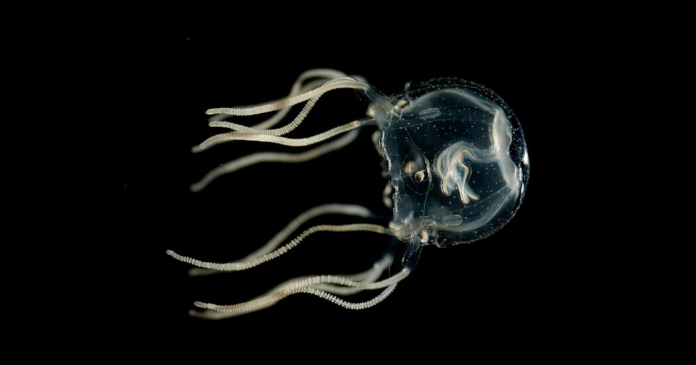In the dappled sunlit waters of Caribbean mangrove forests, tiny box jellyfish bob in and out of the shade. Box jellies are distinguished from true jellyfish in part by their complex visual system — the grape-size predators have 24 eyes. But like other jellyfish, they are brainless, controlling their cube-shaped bodies with a distributed network of neurons.
That network, it turns out, is more sophisticated than you might assume. On Friday, researchers published a report in the journal Current Biology indicating that the box jellyfish species Tripedalia cystophora have the ability to learn. Because box jellyfish diverged from our part of the animal kingdom long ago, understanding their cognitive abilities could help scientists trace the evolution of learning.
The tricky part about studying learning in box jellies was finding an everyday behavior that scientists could train the creatures to perform in the lab.
Anders Garm, a biologist at the University of Copenhagen and an author of the new paper, said his team decided to focus on a swift about-face that box jellies execute when they are about to hit a mangrove root. These roots rise through the water like black towers, while the water around them appears pale by comparison. But the contrast between the two can change from day to day, as silt clouds the water and makes it more difficult to tell how far away a root is. How do box jellies tell when they are getting too close?



